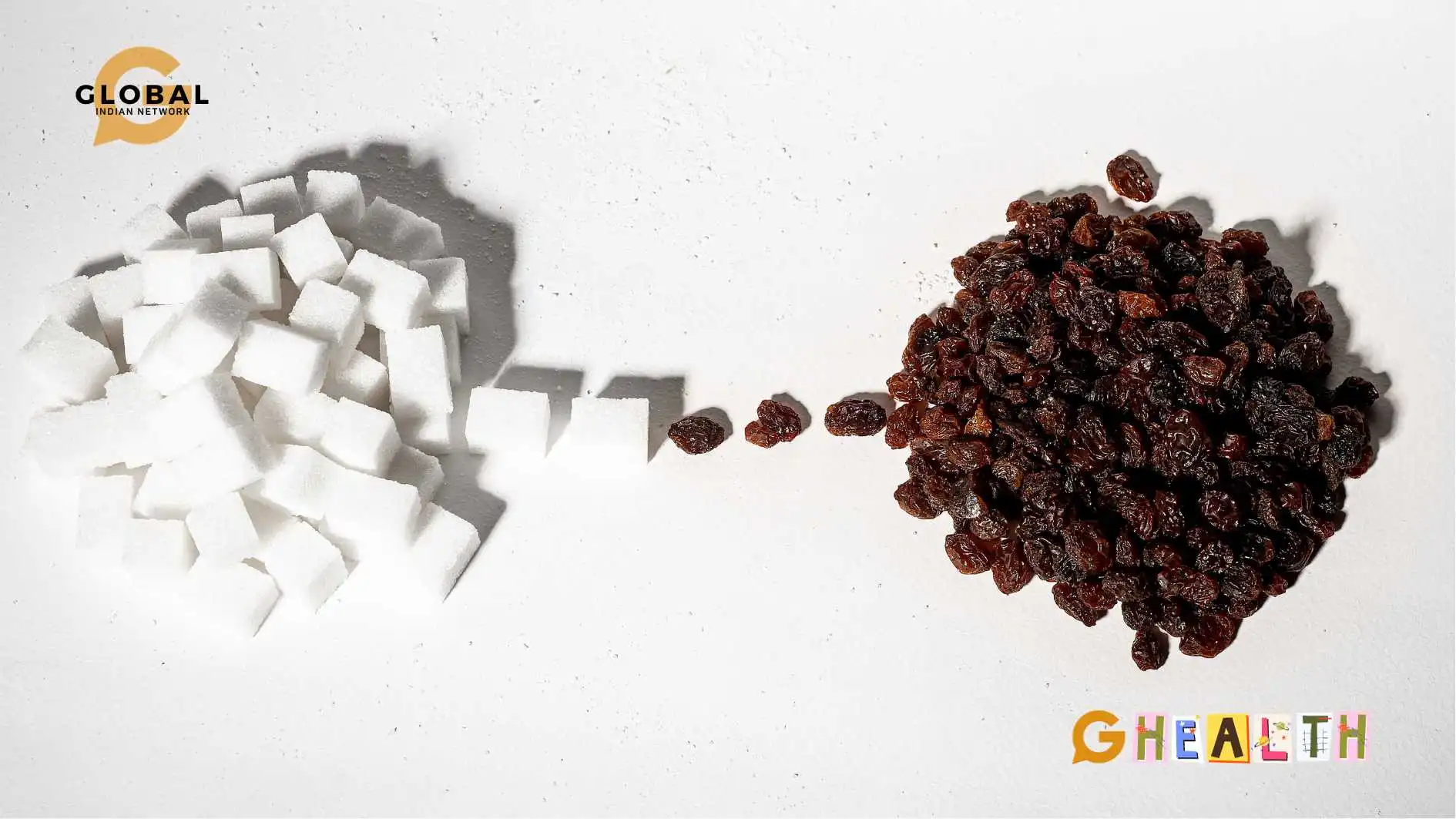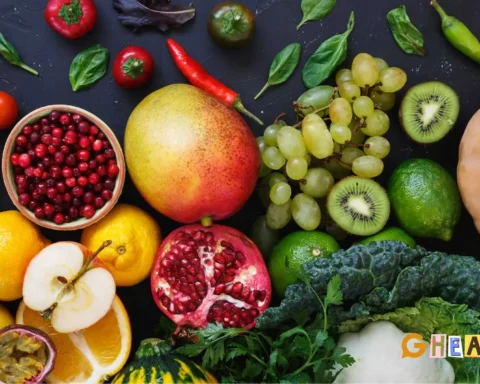Welcome to "A Comprehensive Guide to Natural Sugar Substitutes" – your go-to source for guilt-free sweetness! Join us on this perky journey through the world of natural sugar alternatives, where we'll explore how to satisfy your sweet tooth while staying healthy and happy. Say goodbye to artificial sweeteners and embrace nature's sugary secrets with a smile!
Table of Contents
What are Sugar Substitutes?
Sugar substitutes are sweeteners that provide a sweet taste but have fewer calories and less impact on blood sugar levels than sugar. They are often used by people who are trying to lose weight, manage diabetes, or reduce their sugar intake for other health reasons.
Types of Sugar Substitutes
There are four main types of sugar substitutes:
Artificial sweeteners
These high-intensity sweeteners are created synthetically and have a much higher sweetness intensity than sugar. Some common artificial sweeteners include aspartame, sucralose, saccharin, acesulfame potassium, and neotame.
Aspartame (NutraSweet, Equal): Aspartame is about 200 times sweeter than sugar. It is made from two amino acids: aspartic acid and phenylalanine. Aspartame is safe for most people to consume, but people with phenylketonuria (PKU), a genetic disorder, should avoid it.
Sucralose (Splenda): Sucralose is about 600 times sweeter than sugar. It is made from sugar by replacing three of its hydroxyl groups with chlorine atoms in the sugar molecule. Sucralose is stable at high temperatures, making it a good choice for cooking and baking.
Saccharin (Sweet'N Low): Saccharin is about 300 times sweeter than sugar. It is the oldest artificial sweetener and has been used for over 100 years. Saccharin has a slightly bitter aftertaste, so it is often blended with other sweeteners to improve its flavour.
High fructose corn syrup (HFCS): High fructose corn syrup (HFCS) is a sweetener made from cornstarch. It is a mixture of glucose and fructose, and it is sweeter than sugar. HFCS is used in various processed foods and beverages, including soft drinks, candy, baked goods, and condiments.
For people with type 2 diabetes and heart disease, HFCS has been linked to several health problems, including obesity. It is also a major source of empty calories, which can contribute to weight gain and other health problems.
The American Heart Association recommends that adults consume no more than 6 teaspoons (24 grams) of added sugar per day for women and 9 teaspoons (36 grams) per day for men. However, the average American consumes more than 22 teaspoons (88 grams) of added sugar per day.
Acesulfame potassium (Ace-K): Acesulfame potassium is about 200 times sweeter than sugar. It has a clean, sweet taste and is often blended with other sweeteners to improve its flavour.
Neotame (Neotame): Neotame is about 7,000 to 13,000 times sweeter than table sugar. It is made from aspartame, but it is much more potent. Neotame has a slow onset of sweetness and a long-lasting aftertaste.
Artificial sweeteners are synthetic tabletop sweeteners that are much sweeter than tabletop sugar or corn syrup but have few or no calories and are good alternatives to sugar. They are used in various foods and beverages, including diet soda, sugar-free candy, and chewing gum.
These non-sugar sweeteners are generally safe for most people to consume. However, some people may experience side effects, such as headache, dizziness, and stomach upset. People with PKU should avoid aspartame.
These non-nutritive sweeteners can be an excellent way to reduce your food intake and caloric intake to maintain a healthy body weight. However, it is essential to consume them in moderation and go through the nutrition facts label.
Sugar alcohols
Sugar alcohols are derived from carbohydrates and occur naturally in some fruits and vegetables. They are absorbed more slowly by the body than sugar, so they have fewer calories and less impact on blood sugar levels. This makes them a popular sugar substitute for people with diabetes or those who are trying to lose weight. However, sugar alcohol can cause digestive problems and insulin resistance in some people. Some common sugar alcohols include xylitol, sorbitol, mannitol, isomalt, lactitol, and erythritol.
They are used in various foods and beverages, including chewing gum, candy, sugar-free baked goods, sugar-free drinks, toothpaste, mouthwash, and pharmaceutical products.
They have a sweetness intensity similar to regular sugar, but they vary slightly from one sugar alcohol to another. They are generally safe for most people to consume. However, some people may experience health hazards and side effects, such as gas, bloating, and diarrhoea.
It is essential to start with small amounts of sugar alcohol and increase your intake gradually to avoid these health risks and metabolic effects. These low-calorie sweeteners can be added to sweet foods and dairy products and are a good way to reduce weight gain. However, it is essential to consume them in moderation and go through the warning labels and food labels.
Novel sweeteners
Novel sweeteners are a new generation that is still being studied for their safety and health effects. However, preliminary research suggests that they are safe for most people to consume. These sweeteners may be a good option for people with diabetes who want to consume sugary foods or those who are trying to lose weight. However, it is important to consume them in moderation and read the nutrition labels. Novel sweeteners should not be used as a replacement for a healthy diet and lifestyle.
They are derived from a variety of natural sources, such as fruits, vegetables, and plants. Novel sweeteners are often marketed as healthier and more natural than traditional sweeteners, such as sugar and artificial sweeteners.
Novel sweeteners are a new and exciting category of sweeteners with the potential to offer a healthier and more natural alternative to traditional sweeteners. However, more research is needed to understand their nutritional labels and health effects fully. Some examples of novel sweeteners include tagatose, yacon syrup, and lo han guo.
Natural Sugar Substitutes
These sweeteners are derived from natural sources, such as plants or fruits. They have a lower sweetness intensity than sugar, but they are still sweeter than artificial sweeteners. Some common natural sweeteners include stevia, monk fruit, honey, maple syrup, agave nectar, coconut sugar, molasses, date sugar, yacon syrup, jaggery, and allulose.
Problems Caused by Artificial Sweeteners
Artificial sweeteners, despite being low in calories, have raised concerns due to the risk of Type 2 diabetes, potential health issues, and chronic diseases. Some studies have suggested a link between artificial sweeteners like aspartame and saccharin have adverse effects such as headaches, dizziness, dental decay, bladder cancer, heart disease, bad cardiometabolic health, and gastrointestinal discomfort.
Additionally, there have been concerns regarding their impact on appetite regulation, blood sugar spikes potentially leading to increased cravings for sweets and high-calorie foods. While more research is needed to establish conclusive evidence, it's advisable to use artificial sweeteners in moderation and be aware of any potential sensitivities or safety concerns.
FDA Approved Sugar Substitutes
The FDA has approved six sugar substitutes, acesulfame potassium (Ace-K), advantame, neotame, saccharin, sucralose, and aspartame, safe for human consumption. The FDA has also determined that six sugar alcohols are considered safe (GRAS) for use in food and beverages: sorbitol, xylitol, lactitol, mannitol, erythritol, and maltitol.
Animal studies on artificial sweeteners have produced mixed results. Some studies have shown that artificial sweeteners can cause weight gain, metabolic syndrome, elevated insulin levels, and even cancer. Other scientific evidence has shown that artificial sweeteners are safe and have no adverse effects.
The FDA has concluded that artificial sweeteners are safe for human consumption at the approved levels. However, the FDA recommends that people with phenylketonuria (PKU) avoid aspartame, as it contains phenylalanine.
Some studies have shown that artificial sweeteners can have adverse effects on human health, such as increasing the risk of weight gain, obesity, type 2 diabetes, and cardiovascular disease. Other human studies have shown that artificial sweeteners are safe for human consumption at the approved levels.
A more recent systematic review and meta-analysis of 77 RCTs, published in the journal Obesity Reviews in 2022, found that artificial substitute consumption in sugar-sweetened beverages was not associated with a significant change in body weight or BMI compared to placebo or sugar consumption. The authors concluded that the evidence on the effects of AS on body weight and BMI is mixed and that more research is needed.
For example, a 2017 study published in the journal Cell Metabolism found that artificial sweeteners can disrupt the gut microbiome and lead to insulin resistance, a precursor to type 2 diabetes. Another study published in the journal Nature in 2014 found that artificial sweeteners can alter brain activity and lead to overeating.
However, other studies have shown that artificial sweeteners can be a safe and effective way to reduce sugar intake and lose weight. For example, a 2016 review of 27 studies published in the journal Obesity Reviews found that artificial sweeteners can help people lose weight and keep it off.
Some animal studies have proved that saccharin causes bladder cancer in laboratory rats.
The American Heart Association (AHA), American Diabetes Association, and National Cancer Institute state that artificial sweeteners can be part of a healthy diet and lifestyle for people with diabetes and those trying to lose weight. However, the AHA also recommends limiting their intake of artificial sweeteners to no more than 300 milligrams per day for adults and 150 milligrams per day for children.
Overall, the evidence on the safety of artificial sweeteners is inconclusive. More research is needed to determine the long-term effects of artificial sweeteners on human health concerns.
More about Natural Sugar Substitutes
Natural sweeteners are derived from natural sources, such as plants and fruits. They are often marketed as healthier and more natural than traditional sweeteners, such as sugar and artificial sweeteners.
Natural sweeteners vary in their sweetness intensity and flavour. Some, such as honey and maple syrup, are very sweet and have a strong flavour. Others, such as stevia and monk fruit, are much sweeter than sugar but have a more subtle flavour.
Natural sweeteners are often used as a substitute for sugar in foods and beverages. They can be used to sweeten coffee, tea, cereal, yoghurt, baked goods, and other dishes.
Stevia: Nature's Sweetest Secret
Stevia, a natural sweetener derived from the leaves of the Stevia Rebaudiana plant, has gained popularity as a zero-calorie sugar substitute. The sweet compounds in stevia plant leaves, known as steviol glycosides, provide an intensely sweet flavour without raising blood sugar levels.
The benefits of using stevia products are
- Zero calories: Stevia is virtually calorie-free, making it an excellent choice to include in their dietary supplements for those watching their calorie intake.
- Zero glycemic index: Stevia does not affect blood sugar levels, making it a safe option for diabetic individuals.
- Natural origin: Stevia is derived from a plant which appeals to those seeking natural sweeteners.
- Weight management: By replacing white sugar with stevia, you can reduce your overall calorie intake, potentially aiding in weight management.
Stevia can be used to sweeten beverages, such as tea and coffee, and is suitable for cooking and baking. It's available in various forms, including liquid extracts and powdered versions. When using stevia in recipes, remember that it is significantly sweeter than sugar, so you'll need far less.
Monk Fruit: A Heavenly Sweetness
Monk fruit extract, also known as Luo Han Guo, is another natural sugar substitute that originates from the monk fruit, a small green gourd native to Southeast Asia. The sweetness of monk fruit comes from compounds known as mogrosides.
Health advantages of monk fruit
- Zero calories: Like stevia, monk fruit is virtually calorie-free.
- Zero glycemic index: It does not raise blood sugar levels.
- Natural source: Monk fruit is a naturally occurring sweetener.
- Antioxidant properties: Some mogrosides in monk fruit have antioxidant properties, which may offer health benefits.
Monk fruit sweeteners can be used as an alternative to sugar in various recipes, including beverages, desserts, and sauces. It is available in liquid, powdered, and granulated forms. Be aware that monk fruit can have a slightly different taste than sugar, so it may take some experimentation to achieve the desired flavour in your dishes.
Erythritol: The Sugar Alcohol Sensation
Erythritol is a sugar alcohol that occurs naturally in certain fruits and fermented foods. It is popular as a sugar substitute due to its similarity in taste and texture to sugar without the calories.
Erythritol's impact on health
- Low calorie: Erythritol provides only about 6% of sugar calories.
- Low glycemic index: It has minimal impact on blood sugar levels.
- Tooth-friendly: Erythritol does not promote tooth decay, making it a suitable choice for oral health.
- Gut-friendly: Unlike other sugar alcohols, erythritol is well-tolerated and usually does not lead to digestive issues.
Erythritol can be used as a sweetener in foods, including baked goods, beverages, ice creams, and desserts. It measures like sugar, so you can often substitute it one-to-one in your favourite recipes. Keep in mind that erythritol can have a cooling effect on the human body, which may be noticeable in some recipes.
Xylitol: Sweetness from Nature's Pantry
Xylitol is another sugar alcohol that occurs naturally in many fruits and vegetables. It is commonly used as a sugar substitute in sugar-free gum, candies, and oral care products due to its tooth-friendly properties.
Health benefits of xylitol
- Low calorie: Xylitol provides about 40% fewer calories than sugar.
- Low glycemic index: It has a minimal impact on blood sugar levels.
- Tooth-friendly: Xylitol helps prevent tooth decay by reducing the growth of harmful bacteria in the mouth.
Xylitol can be used in cooking and baking, but it may not be a perfect one-to-one replacement for daily sugar intake in all recipes. It has a similar sweetness to sugar, but it can have a mild cooling sensation, similar to erythritol. Therefore, it's best suited for recipes where this cooling effect won't be a significant concern.
Allulose: The Lesser-Known Gem
Allulose is a relatively new natural sweetener found in small quantities in wheat, figs, and raisins. It has gained attention for its unique properties, including its close resemblance to sugar in taste and texture.
The allure of allulose for health
- Low calorie: Allulose provides only a fraction of the calories found in sugar.
- Low glycemic index: It has a minimal impact on blood sugar levels.
- Tooth-friendly: Like erythritol and xylitol, allulose does not promote tooth decay.
Allulose can be used in various recipes, from beverages to baked goods. It dissolves readily in liquids and behaves similarly to sugar in most recipes. It's a versatile option for those seeking a natural sweetener that closely mimics the taste and texture of sugar.
Agave Nectar: A Natural Sweetener
Agave nectar is a sweet syrup derived from the agave plant, also used to produce tequila. It has been marketed as a natural sweetener with a low glycemic index.
The potential downside of agave nectar is it's not a low-calorie sweetener. It is higher in calories and fructose compared to some other sugar substitutes. Excessive consumption may have adverse health implications, particularly for individuals with blood sugar concerns.
Agave nectar can be used to sweeten beverages, such as iced tea and cocktails, and in recipes for sauces and salad dressings. It has a mild, neutral flavour that can complement a wide range of dishes. However, it should be used in moderation, like any other sweetener.
Maple Syrup: Liquid Gold from Trees
Maple syrup, often called "liquid gold," is a natural sweetener made from the sap of sugar maple trees. It is primarily produced in North America, with Canada being a significant producer. The sap is collected in early spring and then boiled down to create the syrup.
Nutritional benefits of maple syrup
- Natural sugars: Maple syrup contains natural sugars, mainly sucrose, which provide a sweet flavour.
- Antioxidants: It is rich in antioxidants, which can help combat oxidative stress in the body.
- Minerals: Maple syrup contains essential minerals such as manganese and zinc, contributing to overall health.
Maple syrup is a versatile sweetener, perfect for drizzling over pancakes and waffles. It's also an excellent addition to oatmeal, yoghurt, and desserts. In cooking, it can be used in salad dressings, marinades, and glazes to add a unique depth of flavour.
Dates: Nature's Candy
Dates are the fruit of the date palm tree and are known for their natural sweetness. They have been a staple in Middle Eastern and North African cuisine for centuries, both as a sweet treat and an ingredient in various dishes.
Nutritional benefits of dates
- Natural sugars: Dates are naturally sweet due to their sugar content, primarily glucose and fructose.
- Fibre: They are a good source of dietary fibre, which aids in digestion and helps regulate blood sugar levels.
- Vitamins and minerals: Dates contain essential nutrients like potassium, magnesium, and B vitamins.
Dates can be used in a variety of culinary applications. They are often used in energy bars, smoothies, and desserts as a natural sweetener. Dates can also be blended into date paste, which can replace sugar in recipes for baked goods and sauces.
Honey: The Golden Elixir
Honey is a natural sweetener produced by honeybees. Bees collect nectar from flowers and convert it into honey through a complex process of regurgitation and evaporation. The result is the sweet, golden elixir we know and love.
Health benefits of honey
- Antibacterial properties: Honey contains natural antibacterial compounds to help soothe sore throats and wounds.
- Antioxidants: It is rich in antioxidants, which can protect cells from damage caused by free radicals.
- Allergy relief: Some believe consuming local honey may help alleviate seasonal allergies.
Honey is a versatile sweetener in the kitchen. It can be drizzled over yoghurt, used in salad dressings, and added to tea or hot water to soothe a sore throat. In baking, honey can replace sugar and add a distinctive flavour to various recipes.
Coconut Sugar: Nature's Sweet Granules
Coconut sugar is derived from the sap of coconut palm trees. The sap is collected and then heated to evaporate the water content, leaving behind granulated coconut sugar.
Nutritional advantages of coconut sugar
- Low glycemic index: Coconut sugar has a lower glycemic index than traditional sugar, meaning it has a slower impact on blood sugar levels.
- Minerals: It contains small amounts of essential minerals like iron, zinc, and calcium.
- Inulin: Coconut sugar may contain inulin, a type of dietary fibre that can support gut health.
Coconut sugar can be used as a one-to-one replacement for sugar in recipes. It lends a mild caramel-like flavour to dishes, making it a popular choice for baked goods, sauces, and beverages.
Molasses: Nature's Dark Sweetener
Molasses is a byproduct of sugar production, typically from sugarcane or sugar beets. It is the thick, dark, and sweet liquid left after the sugar crystals have been extracted.
Health benefits of molasses
- Minerals: Molasses is a good source of essential minerals such as iron, calcium, and potassium.
- Antioxidants: It contains antioxidants that can help protect cells from oxidative damage.
- B-vitamins: Molasses provides B-vitamins, which are crucial in energy metabolism.
Molasses has a rich, robust flavour that works well in baking, particularly gingerbread, cookies, and barbecue sauces. It can also be used as a sweetener in certain beverages and dishes.
Yacon Syrup: The Andean Sweetener
Yacon syrup is derived from the roots of the yacon plant, which is native to the Andes in South America. Yacon syrup is known for its sweet taste and potential health benefits.
Health advantages of yacon syrup
- Low calorie: Yacon syrup is relatively low in calories, making it suitable for reducing the daily intake of calories.
- Prebiotic properties: Yacon syrup contains fructooligosaccharides (FOS), which act as prebiotics, promoting the growth of beneficial gut bacteria.
- Blood sugar control: Some studies suggest that yacon syrup may help regulate blood sugar levels.
Yacon syrup can be used in recipes as a natural sweetener, similar to honey or maple syrup. It can be drizzled over pancakes or used in dressings and marinades. Due to its potential health benefits, it has gained popularity as a sugar substitute.
Health Benefits of Natural Sweeteners
Natural sweeteners are often considered healthier than other sweeteners, such as sugar and artificial sweeteners. They are derived from natural sources and are often lower in calories and carbohydrates than sugar. Some natural sweeteners also have health benefits, such as reducing blood sugar levels and improving gut health.
Here are some of the health benefits of natural sweeteners:
- Reduced calorie intake: Natural sweeteners are often lower in calories than sugar. This can help reduce your overall calorie intake and promote weight loss.
- Improved blood sugar control: Some natural sweeteners, such as stevia and monk fruit, have improved blood sugar control in people with diabetes.
- Improved gut health: Some natural sweeteners, such as honey, contain prebiotics and fibres that feed the beneficial bacteria in your gut. A healthy gut has been linked to many health benefits, including improved mood, digestion, and immune function.
Conclusion
And there you have it, our delightful journey through "A Comprehensive Guide to Natural Sugar Substitutes" comes to a sweet conclusion! With a list of wholesome options at your fingertips, you're now equipped to sweeten your life naturally. From the leafy charms of stevia to the golden elixir of honey, nature's bounty offers many flavours and health benefits. So, embrace these sweet secrets, remember that moderation is vital, and embark on your journey to a healthier, sweeter, and more vibrant life. Here's to a sweeter you, naturally!
FAQs
What is the healthiest alternative to sugar in India?
In India, jaggery is often considered one of the healthiest alternatives to sugar. It is a natural sweetener made from sugarcane or palm sap, retaining some essential minerals and nutrients, making it a popular choice for those seeking a more wholesome and traditional sweetening option.
Which sweeteners to avoid?
Artificial sweeteners like aspartame and saccharin should be consumed in moderation, as they may have potential health risks. High-fructose corn syrup (HFCS) is best avoided due to its association with obesity and metabolic issues when consumed excessively.
Which type of sweetener is the best?
The best sweetener largely depends on individual dietary and health preferences. Natural sweeteners like stevia, monk fruit, and honey are often considered healthier alternatives to sugar, offering various benefits, but the ideal choice varies from person to person.
Is honey a good sugar substitute?
Honey can be a good sugar substitute due to its natural sweetness and potential health benefits, but it should be used in moderation as it still contains sugars and calories. It may be a better choice for those seeking a more natural alternative to refined sugar.










